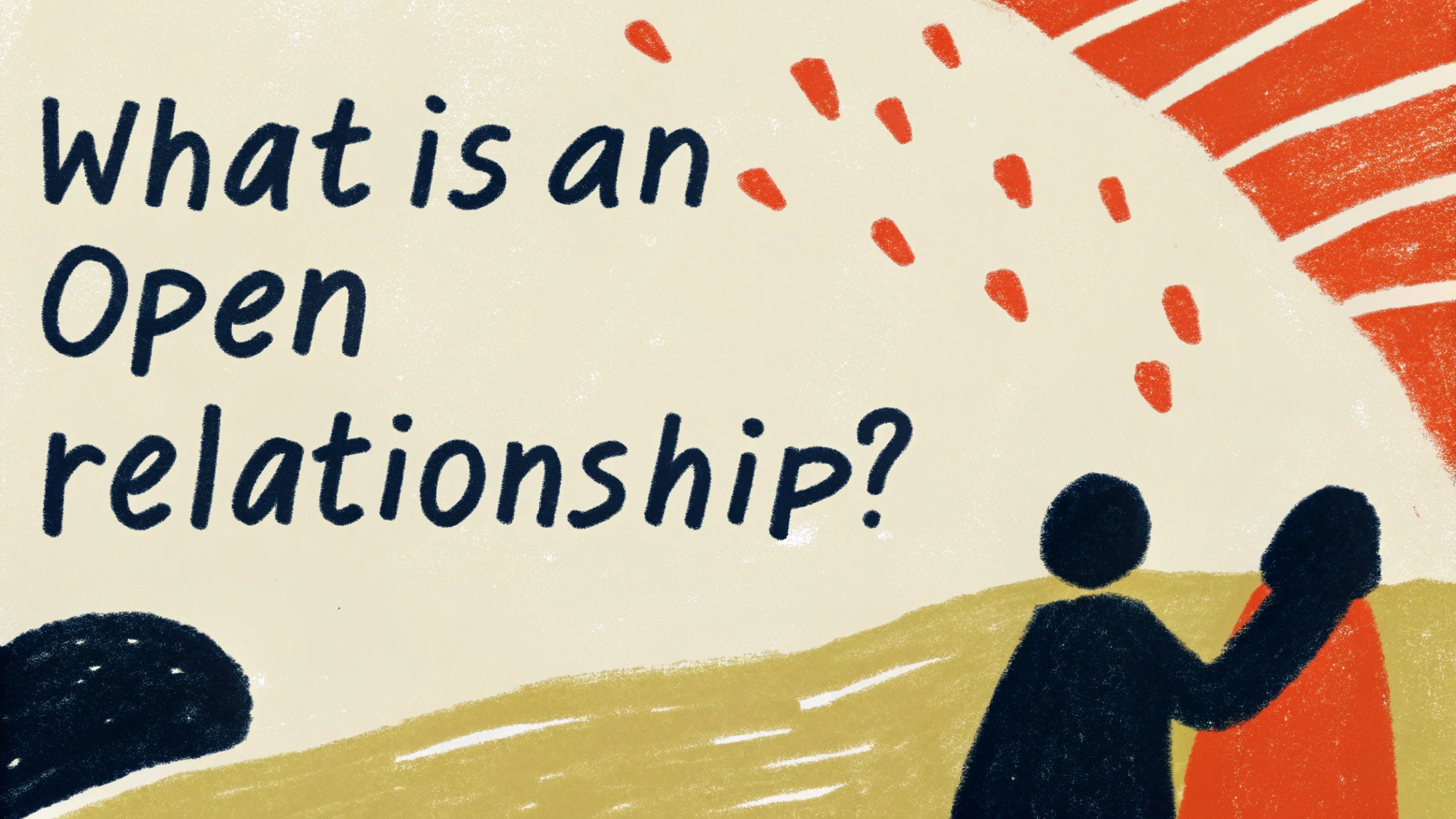
Open Relationships: How They Work, Rules & Honest Pros/Cons
Your partner brought it up — or maybe you're curious. Here's what open relationships actually look like, the rules couples set, and whether it could work for you.
you're here because you're curious, maybe a little confused, possibly worried.
maybe your partner brought it up. maybe you saw something on social media and thought "wait, do people actually do that?" maybe you're in a relationship that feels kinda stuck and you're wondering if this could help.
(spoiler: it's complicated.)
an open relationship is when you and your partner agree that dating or hooking up with other people is allowed. not cheating. not sneaking around. both of you know about it, both of you agreed to it, and (hopefully) both of you set clear boundaries about how it works.
but that definition doesn't really capture what it feels like to be in one, or whether it's actually a good idea, or how you even make that work without everything falling apart.
so let's get into it. the real stuff. not the sanitized version.

what does "open relationship" actually mean?
an open relationship is any romantic relationship where both people give each other permission to be intimate (sexually or emotionally) with other people outside the relationship.
the key word here is permission. this isn't cheating. cheating is when you break the rules. in an open relationship, you're changing the rules together.
here's what that actually looks like in practice:
★ you still have your main relationship
for most couples in open relationships, there's a primary partnership. you're still each other's person. you still plan your lives together, you still prioritize each other. the openness is about allowing additional connections, not replacing what you have.
think of it like having a home base that's secure, but you're allowed to explore elsewhere.
★ you both actually agreed to this
both people have to genuinely be okay with it. if one person wants it and the other is just going along with it to avoid breaking up, that's not really an open relationship. that's a ticking time bomb.
the whole thing only works if you're both choosing it freely. not reluctantly. not under pressure. actively choosing it because you both think it could work for you.
★ you set your own rules (and there are a lot of them)
every couple gets to decide what "open" means for them:
▸ some people are fine with their partner having one-night stands but not catching feelings for anyone
▸ others are okay with emotional connections as long as they stay secondary
▸ some couples want to hear all the details, others prefer "don't ask, don't tell"
▸ some only allow it when traveling, others make it part of everyday life
you literally get to write your own rulebook. and honestly, that's the hard part. because you have to figure out rules for situations you've never encountered before.
★ you talk about it constantly (like, more than you think)
successful open relationships involve so much communication. like, more than you probably communicate now.
you're checking in about feelings. renegotiating boundaries. making sure nobody's feeling neglected or hurt. talking through jealousy when it comes up. processing new experiences together.
if you hate having tough conversations about emotions, this probably isn't for you.
tools like candle can help maintain that daily emotional connection through quick prompts and check-ins, which becomes even more critical when navigating complex relationship structures. when you're juggling multiple connections, those consistent small touchpoints with your primary partner matter more than ever.

open relationship vs polyamory vs swinging: what's the difference?
people throw around a bunch of terms interchangeably. they're not the same. here's what each one actually means:
▸ open relationshipprimary couple allows outside sexual/casual romantic connectionskey difference: you have one main partner, others are secondary
▸ polyamoryhaving multiple romantic relationships with everyone's knowledge and consentkey difference: no hierarchy necessarily, you can love multiple people equally
▸ swingingcouples have recreational sex with others, often togetherkey difference: usually done as a shared activity, not solo dating
▸ monogamishmostly monogamous with occasional agreed-upon exceptionskey difference: like 95% exclusive with specific allowances
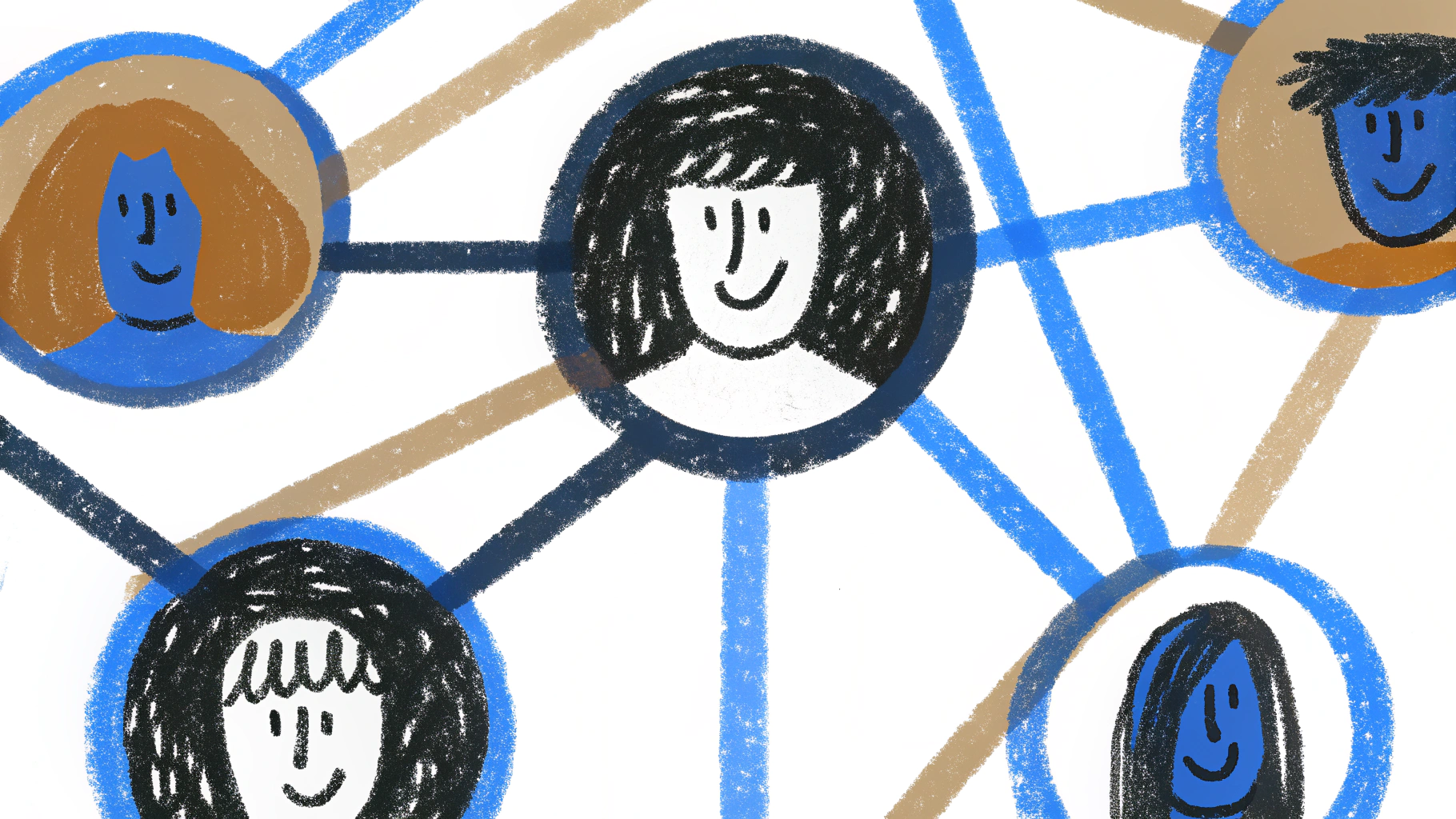
the main difference? open relationships usually keep one partnership as the priority, while polyamory is more about having multiple full relationships. swinging is more recreational and usually done together. monogamish is "mostly faithful with benefits."
they all fall under ethical non-monogamy, which just means everyone involved knows what's happening and consents to it. the opposite of cheating, basically.
why are open relationships becoming more popular?
open relationships aren't new, but they're definitely becoming less taboo. here's what the numbers actually show:
① about 1 in 5 people have tried itresearch shows roughly 20% of adults in the us have engaged in consensual non-monogamy at some point. that's not a tiny fringe group. that's like one person in your friend group (they're just not telling you about it).
② 1 in 4 would consider itstudies indicate that 25% of people would consider trying an open relationship if their partner wanted to. so a quarter of people are at least curious.
③ but most people don't actually do it long-termonly about 3-5% of couples are currently in an open or polyamorous relationship as an ongoing lifestyle. so it's still pretty rare as a permanent arrangement.
④ younger people are way more open to itgen z and millennials are significantly more likely to have tried or be open to non-monogamy than older generations. cultural attitudes are shifting fast.
so yeah, it's becoming more visible and acceptable, but it's still not the norm. most people still want traditional monogamy, and that's totally fine. this is just one option among many.
why do people actually want open relationships?
this is the question, right? like, why make things more complicated when monogamy already exists and works fine for most people?

here are the actual reasons people give (not judging, just explaining):
★ sexual variety without ending the relationship
some people genuinely crave new experiences but still love their partner and want to stay together. an open relationship lets them have both.
it's like saying "i want to try new restaurants sometimes, but this is still my favorite place to come home to."
does that sound shallow? maybe. but sexual novelty is a real thing humans want, and at least they're being honest about it instead of cheating or building resentment.
★ mismatched sex drives or interests
if one person wants sex way more often than the other, or has specific kinks their partner isn't into, an open arrangement might take pressure off the relationship.
instead of:
one person feeling sexually deprived and frustrated
the other person feeling pressured or inadequate
both building resentment over incompatibility
outside partners can fill those gaps. everyone gets what they need without forcing anyone to do things they don't want.
(this only works if both people genuinely agree to it though. if you're just tolerating it to make your partner happy, you're going to be miserable.)
★ one person can't meet all your needs (and maybe shouldn't have to)
there's a philosophical angle here. some people think it's unrealistic to expect one person to meet 100% of your needs forever.
maybe your partner is your intellectual equal but your sex life has fizzled. or you have amazing chemistry in bed but zero shared hobbies. or they're your best friend but you're not sexually attracted to them anymore.
opening up can let you find different connections with different people without demanding your main partner be everything. as one writer put it: it's a lot to ask one person to always fulfill you sexually, emotionally, socially and intellectually.
★ long-distance or logistical challenges
if you're apart for months at a time (military deployment, work assignment, different countries), some couples agree to allow outside connection during the separation.
it's pragmatic. you acknowledge physical needs exist and you'd rather have an agreement than resentment building up over time.
for long-distance couples, maintaining emotional connection through daily rituals like prompts and games can help keep the primary relationship strong even when physical distance creates challenges. the distance is already hard. adding outside connections makes it even more complex. but for some couples, it's better than the alternative.
★ exploring your sexuality
sometimes one partner discovers they're bisexual or realizes there's a side of their sexuality they can't explore within the relationship as it is.
opening up can give them space to explore that part of themselves without ending the relationship. "i love you, but i need to explore this other side of myself, and i don't want to lose you to do that."
★ bringing you closer through honesty (paradoxically)
some couples report that opening up made them more appreciative of each other.
being chosen daily instead of just assumed can feel meaningful. seeing other people find your partner attractive might remind you why you fell for them in the first place. coming home to them after being with someone else and thinking "yeah, this is still my person."
plus, navigating this together requires so much communication and trust that it can deepen your bond (if it doesn't destroy it).
maintaining that connection through consistent check-ins becomes essential. candle helps couples stay emotionally connected through daily prompts that take just minutes but create meaningful touchpoints. when you're navigating something as intense as an open relationship, those consistent small moments of connection matter more than ever.
what most people get wrong about open relationships
here's the part nobody wants to hear:
most couples who try to open up do it for the wrong reasons.
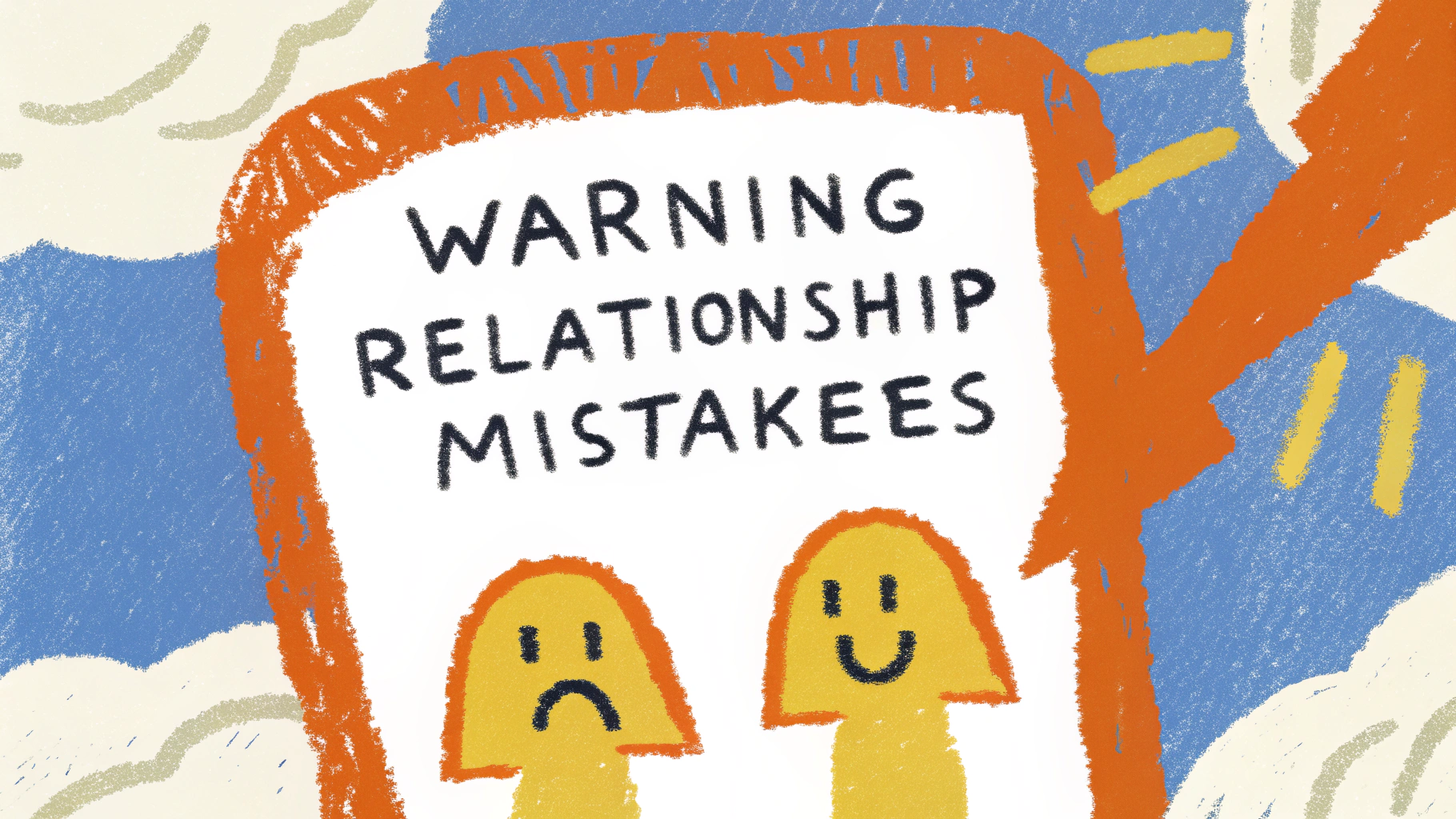
they do it because:
▸ their relationship is already struggling and they think this will fix it (it won't)
▸ one person wants it and the other feels they have no choice (recipe for disaster)
▸ they're trying to avoid a breakup (this accelerates breakups)
▸ someone already cheated and they're trying to retroactively make it okay (nope)
▸ they're bored and hoping novelty will reignite their spark (there are easier ways)
relationship experts emphasize: you should only consider non-monogamy from a place of strength. if your relationship is already fragile, opening it up will likely shatter it completely.
open relationships are not a quick fix for existing problems. they often just highlight those issues in neon lights while adding new problems on top.
how do open relationships actually work? (rules and boundaries)
so if both people actually want this and the relationship is solid, how do you not have it implode immediately?
you create boundaries. lots of them. way more than monogamous couples need, actually.
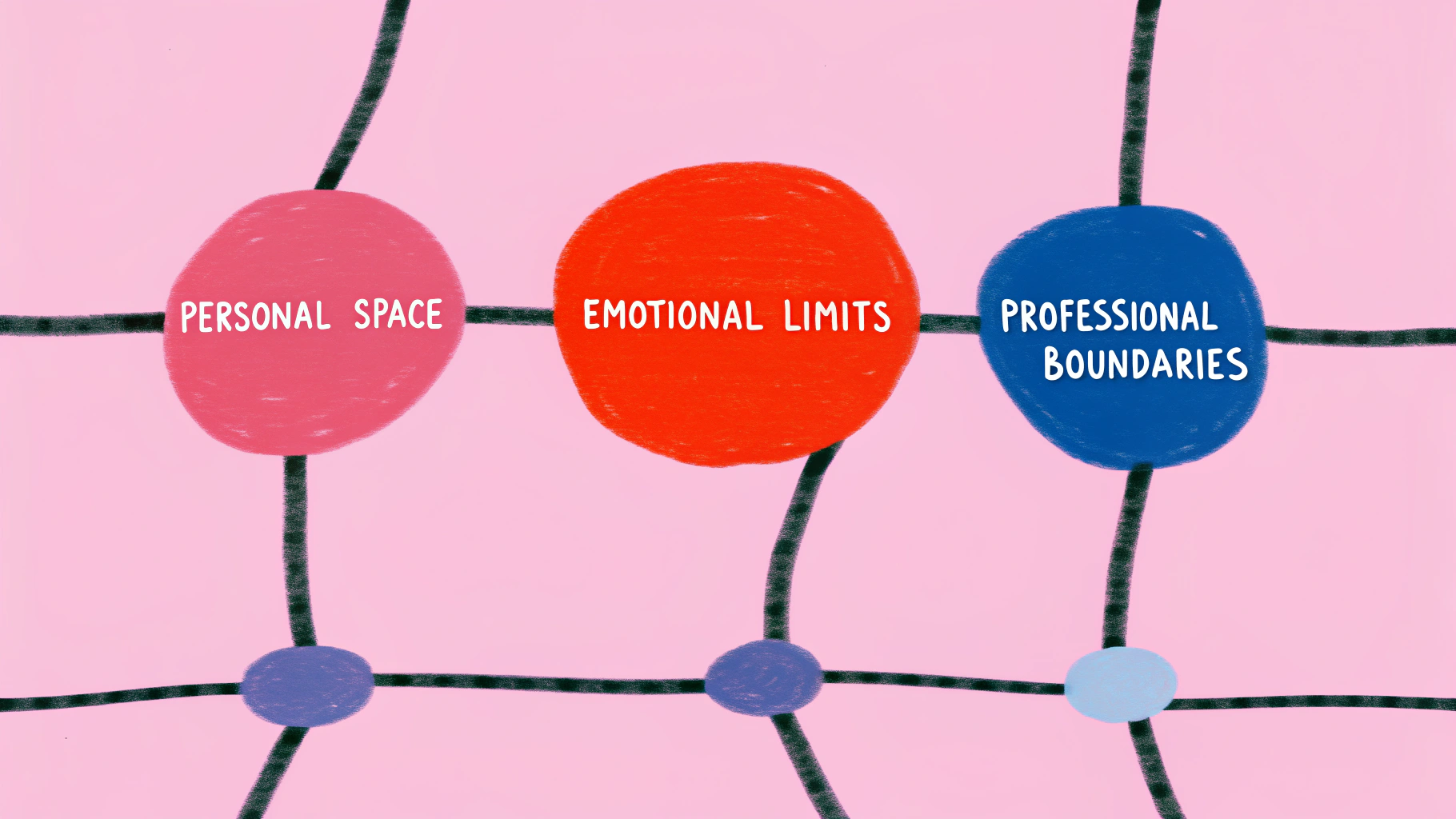
here are the common ones people set:
★ sexual boundaries
the physical rules about what's allowed:
▸ condoms required with everyone else (non-negotiable for most)
▸ certain acts are only for the primary relationship (whatever feels special to you two)
▸ no overnight stays with other people (you always come home)
▸ regular sti testing for everyone involved (every 3 months is common)
▸ no sex in your shared bed/home (keep that space sacred)
★ emotional boundaries
the harder ones to navigate:
▸ "don't fall in love with anyone else" (easier said than done)
▸ you can't date close friends or exes (too messy)
▸ no discussing certain intimate topics with outside partners (some things stay between you two)
▸ if feelings develop, you have to tell your partner immediately (honesty is non-negotiable)
▸ no secret relationships (if you're hiding something, it's probably crossing a line)
★ time management boundaries
keeping priorities straight:
▸ date nights with your partner are sacred, no outside dates on those nights
▸ no more than x encounters per week with others (2 is common)
▸ you always come home to your main partner (no extended stays elsewhere)
▸ family time and major life events are for the primary relationship only
▸ your partner gets advance notice if you're going on a date (no surprises)
keeping those date nights sacred and maintaining daily connection rituals helps ensure the primary relationship stays prioritized even when other connections exist. this isn't optional. this is how you survive this.
★ communication boundaries
how much do you want to know?
option 1: full transparency
"tell me who, when, where, and what happened"
some couples want to know everything. they might even want to meet each other's outside partners. they process jealousy better with information than with imagination.
option 2: need to know basis
"just confirm you're seeing someone, but spare me the details"
some couples prefer minimal info. knowing the basics but not having vivid mental images. they process better with less information.
option 3: classic don't ask, don't tell
"what i don't know won't hurt me"
some couples agree to just not discuss outside encounters at all. as long as the other rules are followed, they'd rather not know.
there's no right answer. you have to figure out which approach protects both of you without creating anxiety or enabling dishonesty.
★ the veto rule
some couples agree that if either person says "i need us to close the relationship again," the other will listen. period. no argument. no negotiation.
this is a safety hatch. it means you can try this knowing there's an escape route if it's not working.
some couples extend this to specific people: "if i feel uncomfortable with someone you're seeing, you'll stop seeing them." this gives the primary partner power to protect the relationship.
(though this can get messy if used manipulatively. "i veto everyone you date because i'm actually not okay with this but i don't want to admit it.")
the boundaries are the heartbeat of any open relationship. they keep both people feeling secure and respected. without clear boundaries that both people genuinely agree to, this doesn't work. period.
and here's the thing: you can break rules in an open relationship. if you violate an agreed boundary, that's still cheating. it's just cheating within a non-monogamous framework.
breaking trust in an open relationship can hurt just as much as traditional infidelity, maybe even more because your partner gave you freedom and you still crossed a line.
how to handle jealousy in an open relationship
okay so real talk: can you actually watch your partner date someone else and be fine with it?
honest answer: probably not at first. and maybe not ever. and that's okay.
jealousy happens in a majority of open relationships. it's normal. it's human. it doesn't mean you're doing it wrong. the difference is how you handle it.
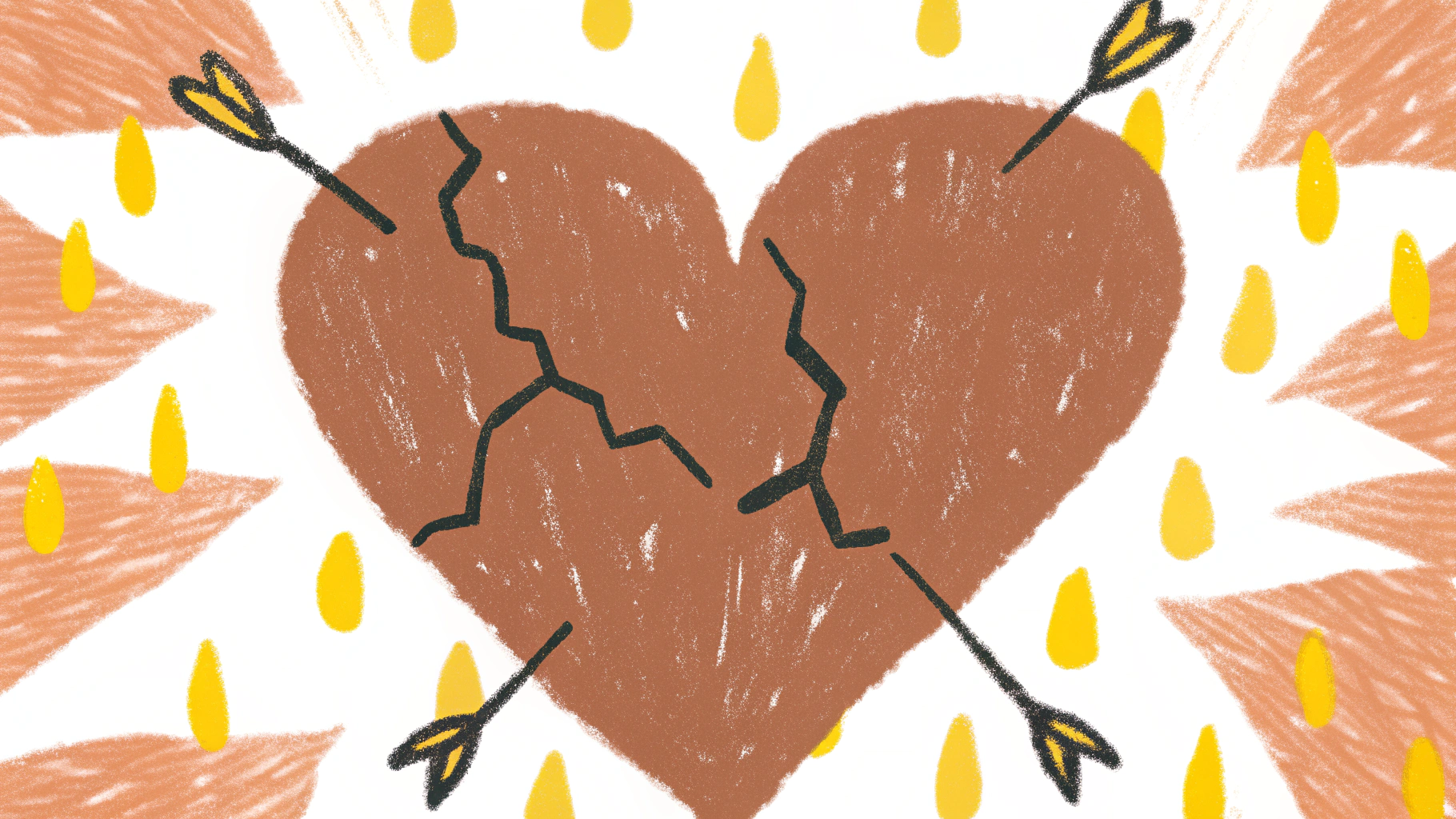
successful open couples don't magically not feel jealous. instead, they:
① talk about it openly (before it festers)
"i felt weird when you went out with them last night. can we talk about it?"
they don't pretend they're fine when they're not. they bring it up before it turns into resentment that poisons everything.
having a daily emotional check-in practice (whether through conversation or tools like candle's daily prompts) helps surface these feelings early before they become overwhelming.
catching jealousy at "i'm feeling a little insecure" is way easier to address than waiting until it becomes "i hate you and this whole situation and i can't believe you'd do this to me."
② give each other reassurance (actively)
jealousy needs counter-evidence. your brain is telling you "they're going to leave you for someone better." you need data that proves that's not true.
what that looks like:
▸ extra affection after an outside date
▸ quality time together where you're fully present
▸ verbal reminders of "you're my person" "i chose you" "coming home to you is my favorite part"
▸ physical intimacy to reconnect
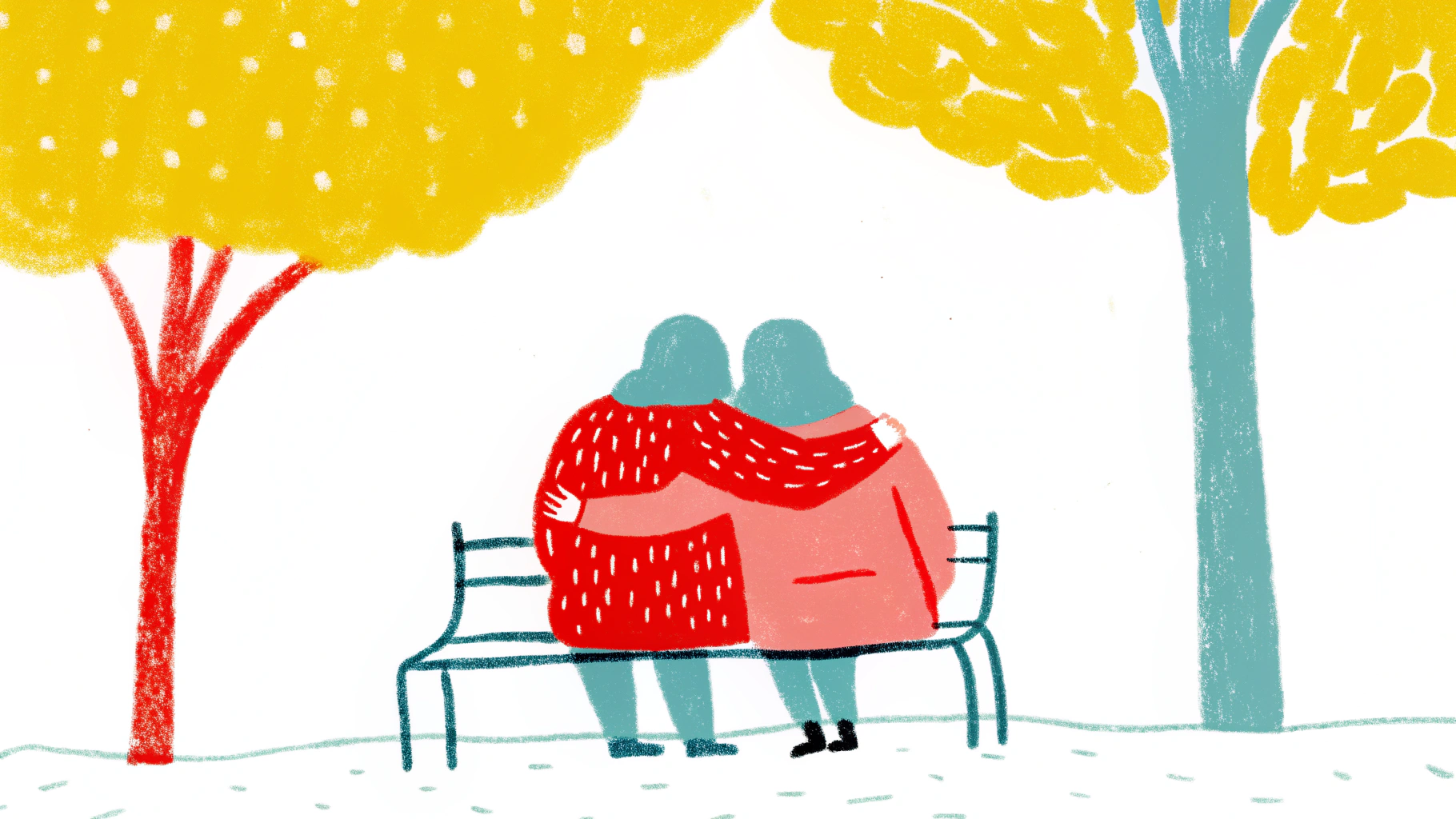
▸ showing (not just telling) that they're still the priority
③ do personal work (because jealousy is about you)
jealousy often connects to insecurity. "am i not enough? will they leave me for someone better? am i less attractive/interesting/important than this other person?"
open relationships force you to confront those fears head-on. which is painful. but also potentially growth-inducing.
some people become less jealous over time as they see that their relationship can handle this without falling apart. they build evidence that their fears aren't coming true.
research shows non-monogamous individuals report no more jealousy on average than monogamous ones, likely because they've developed tools to manage it. they didn't eliminate jealousy. they got better at processing it.
④ know when it's too much (and be honest about that)
if jealousy is overwhelming despite your best efforts, that's a signal. maybe the boundaries need adjusting. maybe you need to slow down. maybe this isn't the right setup for you.
ignoring serious jealousy will destroy you and your relationship. it will eat you alive. it will make you bitter and paranoid and miserable.
there's no shame in saying "i tried this and i can't handle it." that's not failure. that's self-knowledge.
compersion: the opposite of jealousy (if you're lucky)
some people experience compersion, which is feeling happy that your partner is happy with someone else. it's like the opposite of jealousy.
it's that feeling of "seeing them excited makes me excited, even if it's not about me."
not everyone gets there, and you don't have to. but some do, and it can change the dynamic completely. it turns outside relationships from a threat into something that adds to your partner's happiness, which adds to yours.
but don't expect this. don't fake it. if you're jealous, you're jealous. don't gaslight yourself into pretending you feel compersion when you actually feel like throwing up.
benefits of open relationships (when done right)

if an open relationship is done well, with mutual enthusiasm and solid communication, here's what people report:
★ sexual excitement without guilt
you get to experience new relationship energy with someone else while keeping your stable partnership. that honeymoon feeling of dating someone new? you can have that and come home to your person.
the excitement of novelty without the devastation of betrayal.
★ personal growth (through emotional challenges)
navigating this requires serious emotional skills. you level up in:
▸ communication (saying hard things)
▸ boundary-setting (knowing and expressing your limits)
▸ handling tough emotions (processing jealousy and insecurity)
▸ empathy (understanding your partner's perspective even when you're hurt)
▸ self-awareness (knowing what you actually need versus what you think you should want)
these skills benefit all your relationships, not just romantic ones.
★ deeper appreciation for your partner
when you're choosing each other daily instead of just defaulting to each other, it can feel more meaningful.
seeing other people desire your partner might remind you how special they are. coming home after being with someone else and thinking "yeah, this is still the best" hits different than just assuming they're the best.
using daily connection rituals helps reinforce that choice - actively showing up for each other every day rather than taking the relationship for granted.
★ no resentment about sacrificed desires
you're not stifling part of yourself. you're not building up resentment about what you gave up to be with your partner.
ideally, everyone gets to be more authentically themselves. the bi person gets to explore that. the person with the higher sex drive gets their needs met. the person who craves variety gets that without lying.
★ sometimes, better sex with your main partner
learning new things with other partners can translate to your bedroom at home. or the excitement of outside experiences can reignite attraction between you.
surveys found many who tried non-monogamy reported improved sex lives in their primary relationship. the novelty elsewhere creates energy that flows back to the main partnership.
★ actually being honest (about everything)
you're not hiding attractions. you're not lying about where you were. you're not pretending you only have eyes for one person when you're actually attracted to others.
there's something freeing about being able to be completely honest with your partner about your desires and experiences. no secrets. no hiding. no shame.
some studies even found couples in open marriages had equal or higher marital satisfaction compared to monogamous couples. (though obviously that's only for those who genuinely wanted it and managed it well.)
challenges of open relationships (the reality check)

now for the reality check. because it's not all growth and excitement and compersion.
★ jealousy can be overwhelming (even when you're "doing it right")
even with all the communication and reassurance, watching your partner with someone else might hurt more than you expected.
seeing an actual third party involved often amplifies jealous feelings in ways you didn't anticipate when it was just theoretical.
theory: "i'm secure enough to handle this"
reality: lying awake at 2am imagining them with someone else and spiraling into existential dread about your worth as a partner
★ it takes so much time and energy (more than you think)
dating takes time. multiple relationships take exponential time.
between:
juggling schedules
having check-ins with your partner
managing emotions
actually dating others
maintaining your primary relationship
dealing with jealousy when it comes up
it can be genuinely exhausting.
maintaining a regular relationship is already work. maintaining an open relationship is exponentially more complex. you need energy reserves you might not have.
★ unequal interest is brutal (and common)
if one person is going on dates every week and the other is sitting at home alone, that imbalance hurts.
or if one person never really wanted this but agreed to keep their partner, watching them enjoy something you consented to but hate is soul-crushing.
women often have an easier time finding casual partners than men do. so straight couples sometimes find that she's dating multiple people while he can't find anyone. that creates resentment fast.
★ the primary relationship can suffer (from neglect)
new relationship energy is intoxicating. it's really easy to get caught up in the excitement of someone new and start neglecting your main partner.
then suddenly the person you're supposed to prioritize feels like an afterthought. they're at home while you're texting your new person constantly. they want to connect and you're distracted thinking about your upcoming date.
this is why maintaining daily connection habits becomes even more critical. those consistent small moments keep your primary relationship strong when everything else is pulling your attention away.
★ you can still cheat (and it's devastating)
breaking the agreed rules feels like betrayal.
maybe you were supposed to use protection and didn't. maybe you lied about where you were. maybe you developed feelings and hid them. maybe you broke the veto rule. maybe you saw someone you agreed not to.
cheating absolutely happens in open relationships, and it cuts deep because you already had permission for so much. violating the trust in that context feels especially devastating.
★ social stigma is real (and exhausting)
most people don't understand this. you might face judgment from friends and family. you probably can't be open about it everywhere.
that secrecy can be stressful. living a double life where you're "polyamorous queer couple" with your progressive friends but "normal monogamous couple" around family or work gets tiring.
and if you do come out about it, be prepared for a lot of awkward questions and unsolicited opinions:
"so you're okay with your partner cheating?"
"isn't that just an excuse to sleep around?"
"what about when you have kids?"
"i could never do that"
cool. nobody asked.
★ higher health risks (just mathematically)
more partners means more exposure to stis, period.
responsible couples have strict safer sex protocols. regular testing. condom requirements. honest communication about risk.
but the risk is inherently higher than lifelong monogamy with one tested partner. that's just math.
★ someone might want out (and that's painful)
feelings change. maybe one of you realizes this isn't working. maybe one falls in love with someone else. maybe one wants to close the relationship and the other doesn't.
maybe your outside partner catches feelings and wants more than you can give. maybe you catch feelings and realize you want to leave your primary relationship.
these conversations are agonizing. and you can't always predict how you'll feel until you're in it.
★ most open relationships don't last long-term
here's the tough stat: research suggests open relationships have significantly lower long-term success rates than traditional monogamous marriages.
for context, about 40-50% of first marriages end in divorce. open marriages may have even higher failure rates.
sustaining this long-term is exceptionally difficult. the couples who make it work long-term tend to be exceptionally emotionally intelligent, communicative, and genuinely aligned on wanting this lifestyle.
most couples who try opening up eventually close the relationship again (either successfully or because they broke up).
how to know if an open relationship is right for you
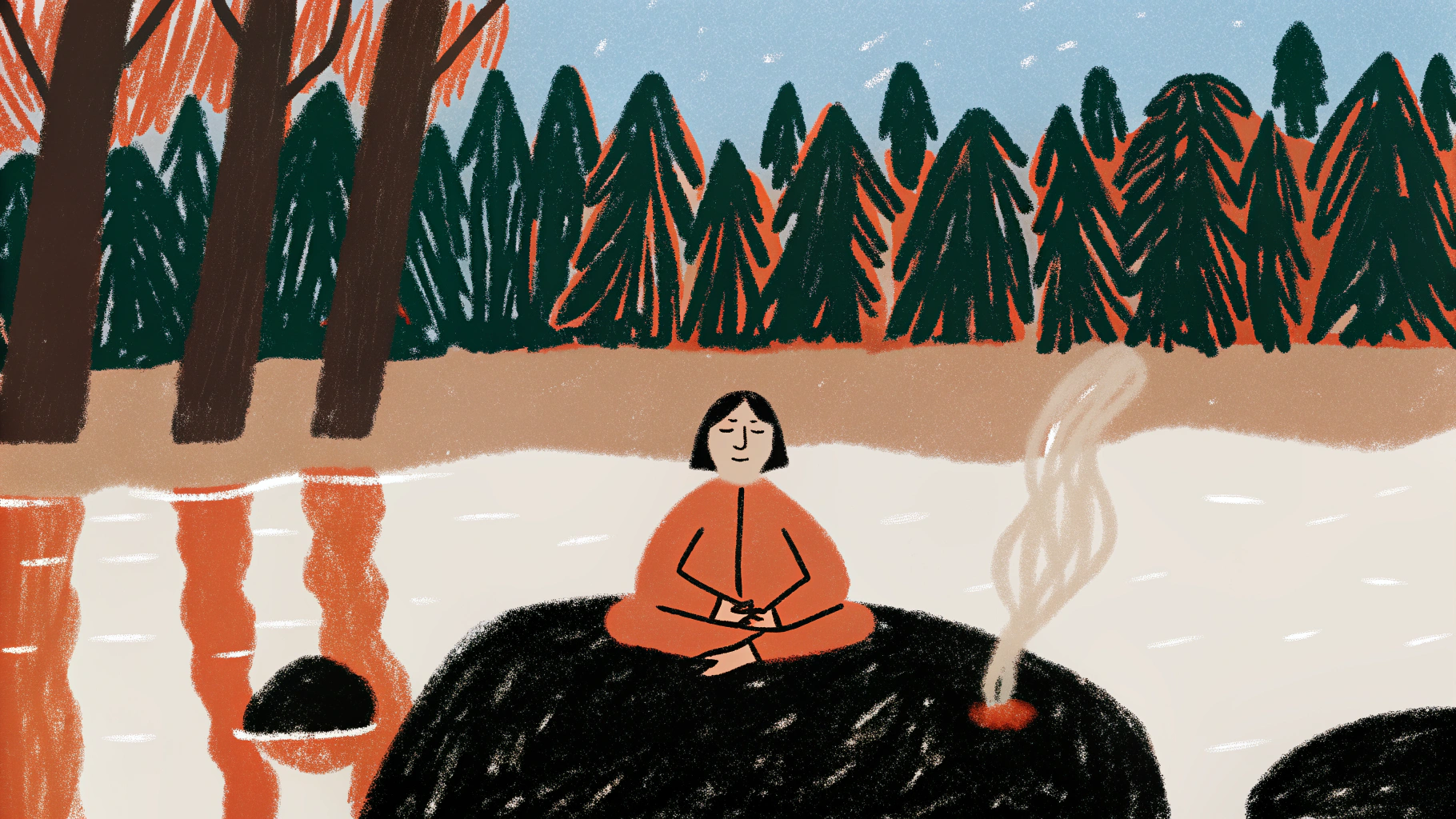
before you even bring this up with your partner, be really honest with yourself:
★ rate your current relationship foundation
on a scale of 1-10, how would you rate these in your relationship:
▸ communication▸ trust▸ emotional intimacy▸ commitment to each other▸ ability to handle conflict▸ sexual satisfaction
if most of those aren't at least an 8, do not open your relationship. work on those first. seriously. opening a weak relationship will break it.
you need a rock-solid foundation before you add this level of complexity. if you're already struggling to communicate or trust each other, this will make everything worse.
building strong communication habits through daily check-ins and conversations can help strengthen that foundation before considering more complex relationship structures.
★ examine why you actually want this (be brutally honest)
✓ good reasons:
▸ we both genuinely want new experiences and have talked extensively about this
▸ we're curious about this from a place of security, not desperation
▸ we want to explore parts of ourselves we've been suppressing
▸ we think this aligns with our values and could enhance our already-strong relationship
▸ we've both wanted this independently, not just because one person suggested it
✗ bad reasons:
▸ our sex life is dead and i hope this fixes it
▸ my partner wants it and i'm scared they'll leave if i say no
▸ we're bored and haven't tried couples therapy yet
▸ i already have someone specific in mind (red flag)
▸ maybe this will make them realize they don't want anyone else (manipulation)
▸ we're fighting all the time and need something new
▸ i want permission to sleep with my coworker i've been flirting with
if your "why" is mostly from the bad list, don't do this. fix your relationship first. or end it. but don't open it.
★ can you actually handle jealousy? (test yourself)
imagine your partner on a date right now. kissing someone. sleeping with them. telling them things. laughing at their jokes. coming home late and not texting you back because they're busy with someone else.
how do you feel? really sit with that feeling.
if it makes you want to throw up, you might not be ready for this. (which is totally okay!)
if you're feeling uncomfortable but curious, that's normal.
if you're feeling genuinely fine or even happy for them, you might be built for this.
★ are you both genuinely enthusiastic? (not just agreeing)
both people need to want this. enthusiastically. not reluctantly. not "i guess if you really need this." not "okay fine but i'm not happy about it."
if one is excited and the other is reluctantly agreeing, that's not consent. that's coercion. and it will breed resentment that will poison everything.
you need to be able to say "yes, i genuinely want to try this for myself, not just for you."
★ can you talk about hard stuff? (without shutting down)
open relationships require constant, vulnerable communication about uncomfortable feelings.
"i felt jealous when you went out last night"
"i'm developing feelings for someone and i need to talk about it"
"i think we need to adjust our boundaries"
"i'm not okay with how much time you're spending with them"
if you avoid conflict or shut down during tough conversations, this will be torture for both of you. you'll bottle everything up until you explode.
having regular emotional conversations becomes essential. tools like candle's conversation starters can help build that communication muscle with low-stakes practice before tackling harder topics.
★ do you have the emotional bandwidth? (right now, not hypothetically)
are you dealing with major life stress right now?
new baby? job crisis? mental health struggles? family emergency? health issues? financial problems?
this might not be the time to add relationship complexity. seriously.
wait until you're both in a stable place before introducing this level of difficulty.
how to start an open relationship without it falling apart
okay, so you've thought about it, talked about it, and you both actually want to give this a try. here's how to improve your odds:

① start with clear boundaries (and write them down)
sit down and map out your rules before anyone does anything with anyone else.
cover:
▸ what's sexually allowed (what acts, with whom, how often)
▸ how much you want to hear (full transparency vs minimal details)
▸ time commitments (how many dates per week/month)
▸ how you'll handle feelings if they develop (immediate disclosure? pause rule?)
▸ safe sex protocols (condoms always? testing frequency?)
▸ veto power (can either person say "stop seeing this person"?)
▸ physical boundaries (not in our bed? not in our home?)
▸ friend boundaries (not with mutual friends? not with exes?)
write this stuff down. memories get fuzzy when emotions run high. having a document you can reference matters.
revisit it regularly. boundaries can change as you learn what actually works versus what you thought would work.
② start slow (test the waters)
you don't have to go from zero to full open relationship overnight. maybe start with:
level 1: flirting with others (at bars, on apps, whatever)
level 2: making out with others (but no sex yet)
level 3: a threesome (shared experience, both present)
level 4: allowing dates but not sex
level 5: full openness
test the waters. see how it actually feels versus how you thought it would feel. you might be surprised in either direction.
③ check in constantly (make it a ritual)
have regular "state of the union" talks. weekly at minimum. schedule them. put them on the calendar.
discuss:
▸ what's going well▸ any new feelings or worries▸ whether any rules need adjusting▸ how you're each feeling about the primary relationship▸ anything that felt off this week
don't wait for problems to explode. catch them early when they're manageable.
setting aside dedicated time for emotional check-ins ensures you're staying connected and addressing issues before they become crises.
④ prioritize your main relationship (always)
your partner comes first. period. not sometimes. not when it's convenient. always.
set that intention clearly and back it up with actions:
▸ keep your regular date nights sacred (no canceling for outside dates)
▸ don't let outside partners take priority over your person
▸ maintain your rituals and inside jokes
▸ keep showing up for each other daily
▸ respond to their texts even when you're with someone else
▸ come home when you said you would
candle can help you stay connected through quick daily prompts and challenges, even when life gets complicated. when you're navigating something as intense as an open relationship, those consistent small moments of connection matter more than ever.
⑤ have an exit plan (before you need it)
agree upfront: if either person says "i need to stop," you stop. no questions. no guilt. no arguing.
you pause everything outside the relationship and refocus on each other. you figure out what went wrong. you decide together if you want to try again or close it permanently.
knowing there's a safety hatch makes this less terrifying to try. you're not trapped.
⑥ consider getting help (seriously)
seeing a couples therapist who understands non-monogamy can be invaluable. not all therapists do. find one who specializes in alternative relationship structures.
they can help you:
▸ navigate tough conversations▸ establish healthy boundaries▸ work through jealousy▸ figure out if this is actually right for you▸ process complicated feelings
there are also books, online communities, and forums for people in open relationships. learning from others' mistakes is gold.
⑦ be ready for turbulence (it's guaranteed)
you will hit emotional rough patches. that's not a maybe. that's a definitely.
the first time your partner goes on a date, you might feel physically sick. or you might feel weirdly fine and that confuses you. or you might feel fine at first and then have a delayed panic attack three days later.
commit to not making rash decisions in emotional moments. pause. talk. process. then decide if something needs to change.
⑧ respect your outside partners too (they're people)
if you're dating other people, be honest with them about your situation.
let them know:
▸ you're in an open relationship▸ what your boundaries are▸ what they can/can't expect from you▸ that your primary partner comes first
treating people with respect and honesty extends beyond your primary partnership. don't lie to or mislead people just to get what you want.
celebrities in open relationships (yes, real people do this)
it helps to know this isn't just theoretical. real couples navigate this successfully:
mo'nique and sidney hicks have openly discussed their open marriage built on honest communication and mutual agreement. interestingly, once they allowed openness, neither felt a strong urge to stray. but knowing they could removed the feeling of repression.
will smith and jada pinkett smith have hinted at an unconventional arrangement over the years. jada once said, "will can do whatever he wants as long as he can look at himself in the mirror and be okay." they emphasize trust and personal integrity over rigid rules.
nico tortorella and bethany c. meyers identify as a queer, polyamorous married couple. they've been transparent about crafting a non-traditional marriage with evolving boundaries, even creating a written relationship agreement they revisit regularly.
and countless everyday couples quietly practice ethical non-monogamy. your neighbors, colleagues, friends. they just don't advertise it because it's nobody's business.
the common thread? communication, trust, and genuine mutual desire for this lifestyle. not settling. not compromising. both people actively choosing this.
are open relationships worth it? (the only honest answer)
here's the truth: open relationships work amazingly for some people and destroy others.
for the couples who thrive in this:
▸ they communicate better than most monogamous couples ever will▸ they feel more authentic and aligned with themselves▸ they experience more sexual fulfillment▸ they actually grow closer through the challenges▸ they feel liberated from traditional relationship expectations
for the couples where it fails:
▸ jealousy becomes unbearable no matter what they try▸ trust breaks down completely▸ the relationship ends, sometimes very badly▸ they realize they valued monogamy more than they thought▸ they damaged their relationship in ways they can't repair
there's no universal answer. it depends entirely on you, your partner, and your specific relationship dynamic.
most people prefer monogamy, and that's completely valid. monogamy has its own beauty:
▸ deep one-on-one intimacy▸ simplicity▸ societal support▸ less complexity and emotional labor▸ clear boundaries everyone understands
open relationships aren't "more evolved" or "more honest" or "the future." they're just different. they're one option among many ways to structure love and commitment.
the bottom line: what you actually need to know
what it requires from you:
★ exceptional communication skills★ deep trust and security★ genuine mutual enthusiasm★ strong emotional resilience★ constant check-ins and boundary negotiations★ ability to handle jealousy productively
what it offers you:
★ sexual variety and excitement★ personal growth and self-discovery★ deeper appreciation for your partner★ authenticity and honesty★ new experiences while keeping stability★ reduced sexual monotony
what it costs you:
★ intense jealousy and insecurity★ significant time and energy★ risk of the relationship suffering★ social stigma and judgment★ high failure rates statistically★ emotional turbulence
only you and your partner can decide if the potential rewards are worth the very real risks.
final checklist: before you try this
if you're seriously considering this:
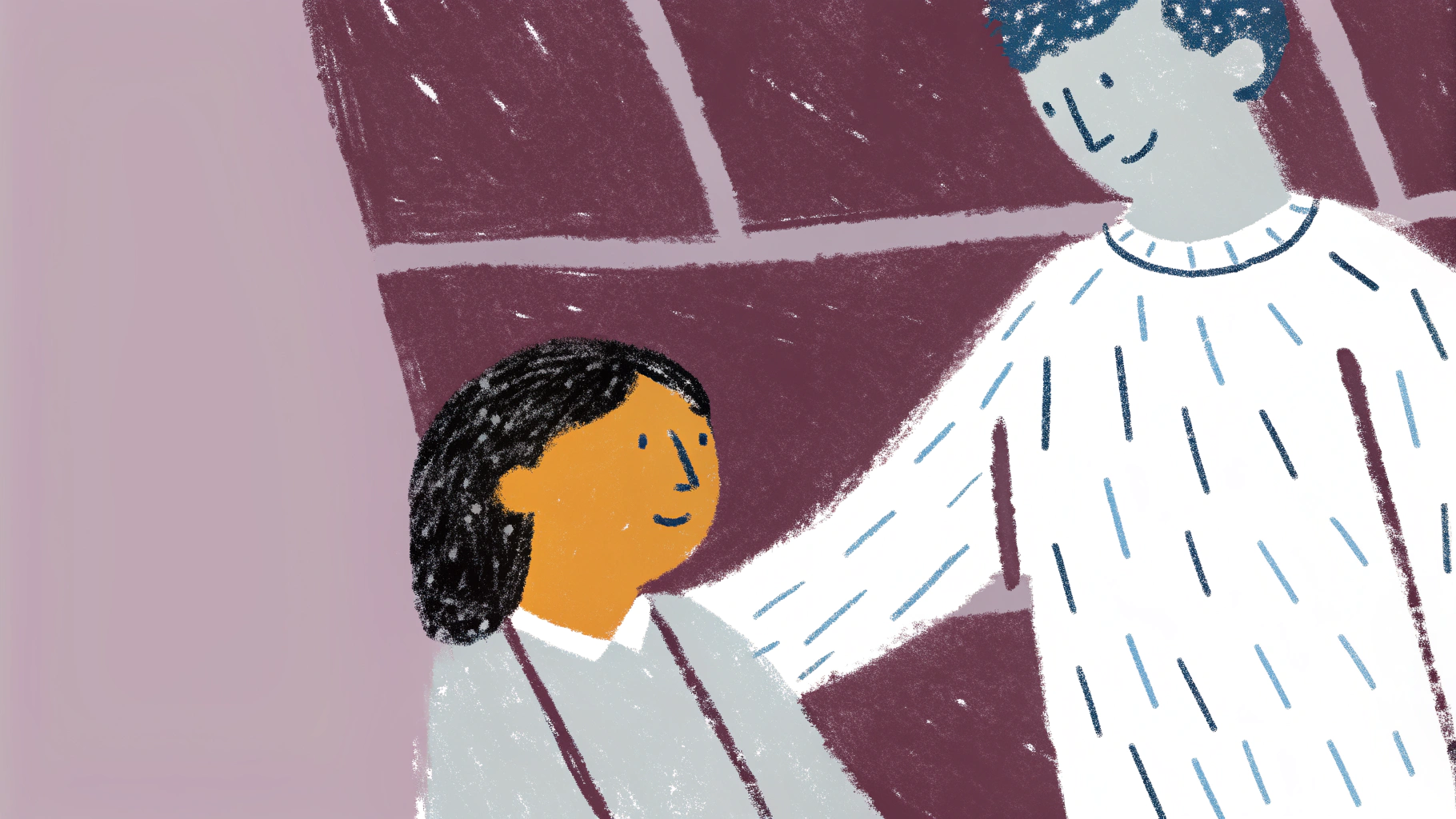
□ our relationship is already strong (not struggling)
□ we've examined our motivations honestly (and they're good)
□ we've talked extensively about this (not just one conversation)
□ we both genuinely want this (not just tolerating it)
□ we've written down clear boundaries we both agree to
□ we have a plan for checking in regularly
□ we've discussed how we'll handle jealousy
□ we have an exit plan if it's not working
□ we're both in a stable place emotionally (not in crisis)
□ we're prepared to prioritize our primary relationship always
□ we're ready to close it again if needed (no shame in that)
if you can't check most of those boxes, work on those things first before opening your relationship.
if you try it and decide it's not for you, that's not failure. that's self-knowledge. lots of couples experiment with openness and then happily return to monogamy. others find their groove and continue. both outcomes are fine.
what matters is that whatever you choose, you're doing it together, with honesty, respect, and genuine care for each other.
open relationships require open communication and open honesty above all else.
whether you're monogamous or not, the fundamentals of a healthy relationship stay the same: trust, communication, respect, and love. if you have those, you're already winning.
and if you're trying to maintain connection while navigating any relationship complexity (open or not), remember that consistent small moments matter. daily check-ins. quick meaningful interactions. showing up for each other even when life gets complicated.
that's what keeps the foundation strong. that's the whole philosophy behind candle: feeling closer every day through just a few minutes of intentional connection.
whatever path you choose, choose it together. and keep choosing each other, in whatever way works for you both.